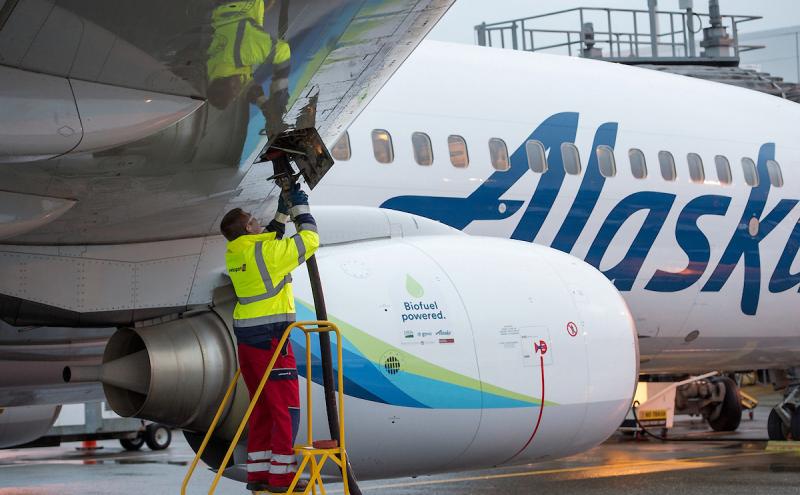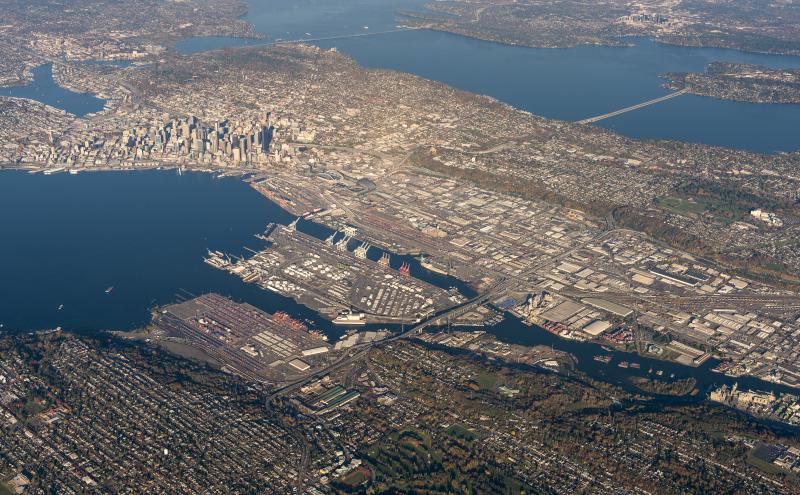By Stephanie Meyn
Seattle-Tacoma International Airport (SEA) is accelerating towards the Port’s goals to reduce carbon emissions. Today, we became the first airport in the country to purchase thermal renewable natural gas (RNG), a low-carbon natural gas alternative produced from landfill waste, to heat the airport terminal.
This decision to switch from higher carbon fossil fuel to renewable waste-derived fuel will enable the Port to reduce its carbon emissions by 50 percent in 2021, a goal that was initially targeted for 2030.
This long-sought major milestone, approved by the Commission on April 14, 2020, authorized a $23 million, 10-year supply contract with U.S. Gain for RNG. That’s enough fuel to heat 55 percent of the SEA terminal and to power 100 percent of the bus fleet.
RNG produces no new carbon emissions because it replaces fossil fuels and recycles existing carbon in the atmosphere. Natural gas accounts for 75 percent of the Port’s annual climate-warming greenhouse gas emissions. This contract will result in the reduction of approximately 11,000 tons of emissions the Port directly produces from its own operations (scope 1) and those from the electricity it purchases (scope 2).
Over the 10 year lifespan of the contract, using RNG at SEA Airport will remove the emissions equivalent of:
- Heating 40,000 Seattle homes
- Taking 24,000 passenger vehicles off the road
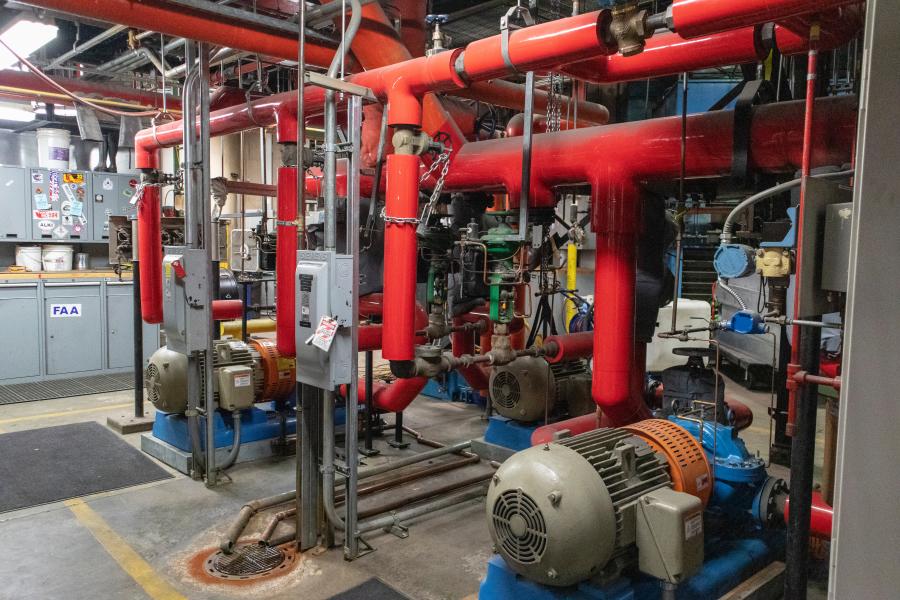
Sustainability tied to economic recovery
It’s significant that the Port Commission and SEA Airport leadership approved this investment during the pandemic.
SEA has been hit hard by COVID-19 with an almost 60 percent decrease in travelers this year from the first eight months of 2019. The pandemic also spotlights why our environmental efforts are critical. Investments in our sustainability programs are part of the Port’s economic recovery strategy.
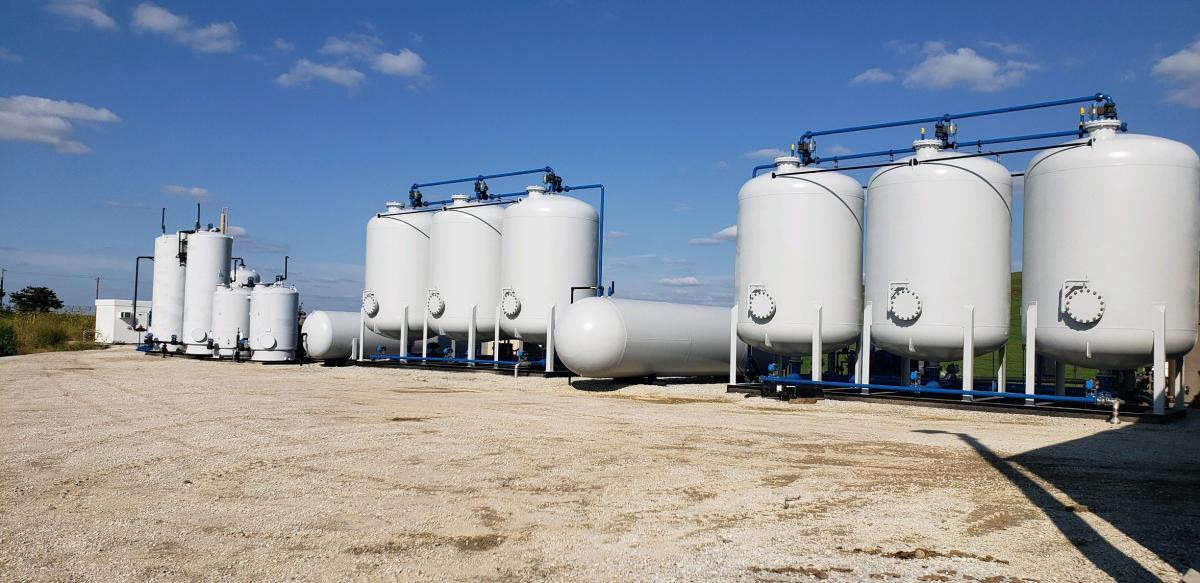
Low carbon fuel standard needed
The Port wanted to switch to RNG earlier, but struggled to find a significant and affordable source of the low carbon fuel.
The Port’s RNG supply comes from a landfill outside Washington state as most large in-state landfills and dairy farm digesters already capture and sell their RNG either as electricity or transportation fuel to California markets. California state legislation provides price incentives for low carbon fuels making it more lucrative for renewable fuel providers.
For the past three years, the Port has strongly supported legislation creating a statewide Clean Fuel Standard for Washington, which would create incentives for new businesses to produce these fuels for use in transportation in Washington. The Port utilized RNG in buses in 2014 and 2015, but the supply was transferred out of state due to financial incentives offered in California. Once Washington creates a clean fuel standard, all transportation fuel users will benefit from renewable fuels that are equivalent or cheaper in price than fossil gasoline or diesel.
A Washington policy incentive to spur the development of low carbon fuels remains the Port’s top legislative priority.
Low-emissions equipment
This summer, the Port Commission said yes to advancing electric ground support equipment (eGSE) charging for Concourses A and B and South Satellite at SEA.
SEA's eGSE charging stations allow airlines to use electrically powered GSE rather than fossil fuel to reduce carbon and other air emissions.
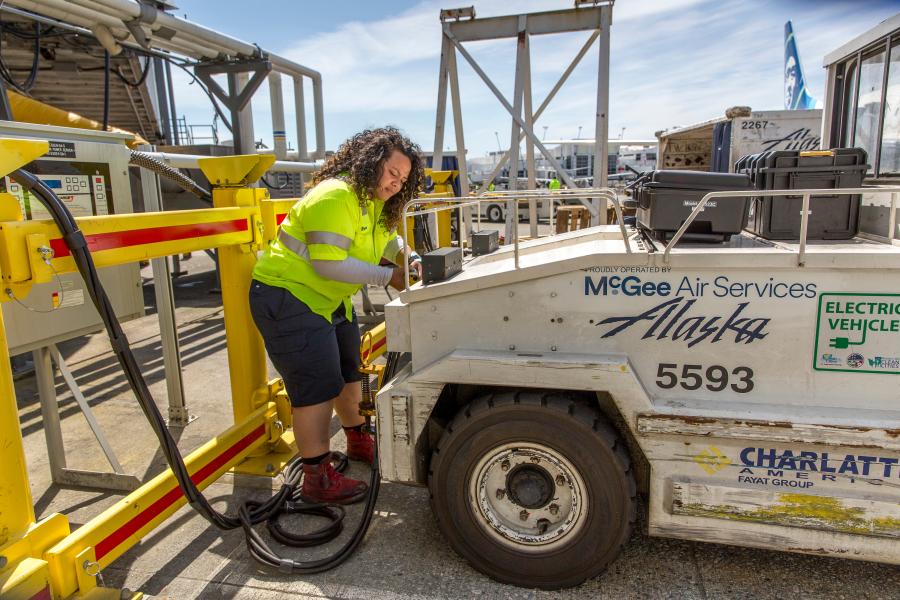
This follows the conversion of Concourse C and D and North Satellite to eGSE in 2014, which demonstrated emission reductions of around 4,000 metric tons CO2/yr. This progress on phase two will reduce CO2 emissions by an additional 4,000 to 5,000 metric tons per year.
The Port and SEA have a mission to be the greenest and most energy-efficient port and airport in North America, targeting carbon neutrality by 2050. Some of our daily work has changed during the pandemic, but our long-term commitment to this region and vision are stronger than ever.


